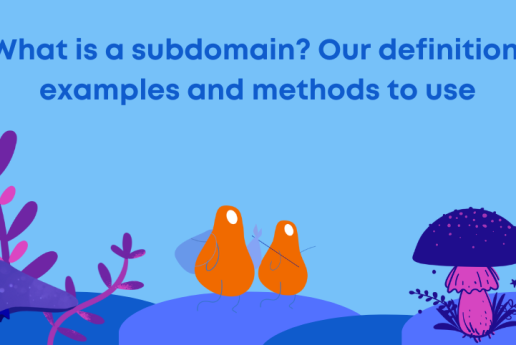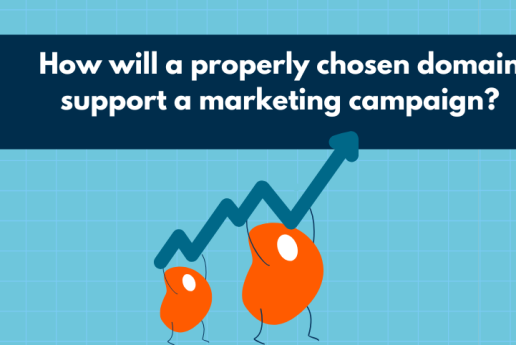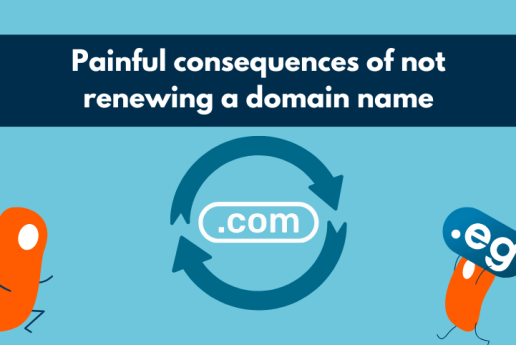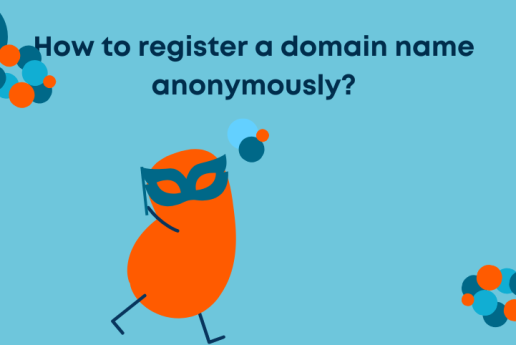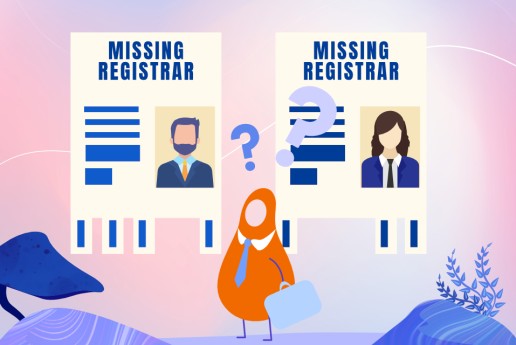Ce să faci când altcineva este listat ca abonat al domeniului tău?
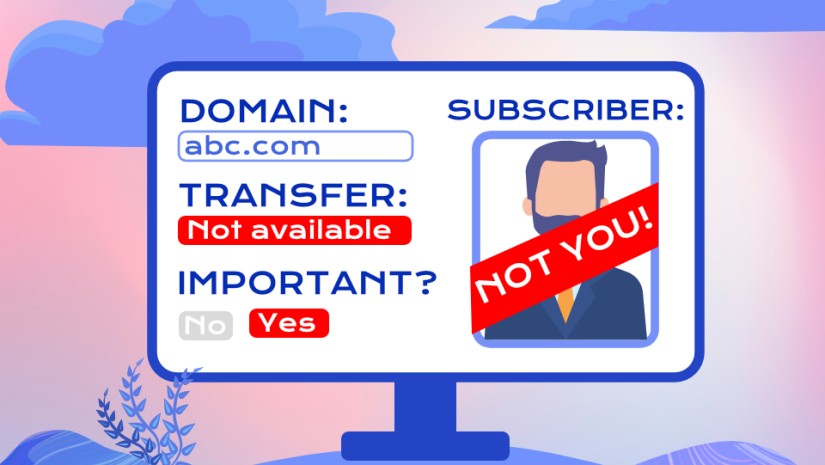
Vom descrie o problemă destul de comună în lumea domeniilor, care ar putea să te afecteze și pe tine. Este vorba despre o situație în care ai cerut odată unui prieten, unui specialist IT de la muncă sau poate unui partener, să înregistreze un domeniu de internet pe care îl folosești până în ziua de azi. Probabil că înregistrarea domeniului a mers mână în mână cu configurarea unui site web și a găzduirii. Nu ai discutat detaliile legate de domeniu, pentru că ai crezut că nu este nevoie să o faci. Atunci ai gândit „Până la urmă, sunt prietenul lor, așa că ce ar putea să meargă prost?”. Pur și simplu nu ți-a trecut prin minte să te gândești la asta în detaliu. Ai presupus că nu va trebui să te îngrijorezi prea mult.
Acum imaginează-ți că trec anii. Site-ul tău se dezvoltă, este recunoscut și devine sursa principală a veniturilor tale. Între timp, prietenul tău a devenit dușmanul tău, specialistul IT a plecat în Mexic și a dispărut, sau te-ai despărțit de partenerul tău în urma unei certuri.
Realizarea a ceea ce s-a întâmplat vine atunci când trebuie să schimbi sau să transferi delegarea domeniului tău. Poate că persoana care a înregistrat domeniul și-a amintit brusc de el, a observat că a câștigat valoare și a început să te șantajeze, sau l-a scos la licitație? Până la urmă, nu ai discutat niciun detaliu. Îți amintești?
Te întrebi ce poți face dacă altcineva este abonatul domeniului? Vei învăța despre asta în acest articol.
Cine este un abonat de domeniu și de ce contează?
Un abonat de domeniu este o persoană fizică sau o organizație care are dreptul de a gestiona un anumit nume de domeniu înregistrat. Abonatul nu cumpără proprietatea domeniului, ci dobândește dreptul de a-l folosi ca parte a unei subscripții pentru o perioadă specificată de timp.
Presupunând că ai comisionat înregistrarea domeniului tău unei alte persoane, dar acea persoană l-a înregistrat folosind datele lor și nu ți l-a atribuit, conform legii ești acum o terță parte și nu ai drepturi asupra acestuia. Cu toate acestea, încheierea cu succes a unui contract de înregistrare nu înseamnă că executarea acestuia nu încalcă drepturile terților. Există reglementări legale și dispoziții în reglementările registratorilor (autoritățile care supraveghează extensiile specifice de domenii) care pot permite să recâștigi controlul asupra domeniului.
De ce este important să apari în sistem ca abonat de domeniu?
Ca abonat de domeniu, ai control total asupra acestuia. Poți să-l gestionezi, adică să schimbi atribuirea sa (schimbarea proprietarului) sau să-l transferi la un alt registrator dacă, de exemplu, termenii actuali de serviciu nu îți mai convin sau chiar când registratorul încetează să existe. Dacă nu ești un abonat legal al domeniului, te poți expune riscului ca cineva să-ți vândă domeniul, să-l dezactiveze sau chiar să-l șteargă. Ca abonat formal de domeniu, poți să-l administrezi convenabil fără să te îngrijorezi că ceva rău se va întâmpla cu el într-o zi.
Prin urmare, la început dorim să te avertizăm că, dacă ai comisionat cuiva să-ți gestioneze domeniul, dar nu ești sigur dacă ești abonatul său, contactează această persoană cât mai curând posibil, clarifică situația și, dacă nu, cere-i să ți-l atribuie. Poți găsi datele actuale ale abonatului domeniului conectându-te la panoul de administrare al domeniului. De asemenea, poți contacta registratorul domeniului tău și să-i întrebi dacă ești un abonat formal. Informațiile despre registratorul domeniului pot fi găsite în baza de date WHOIS.
Contactează abonatul formal al domeniului „tău”
Dacă ai stabilit că folosești un domeniu fără a fi abonatul său, soluția evidentă și cea mai convenabilă este să contactezi abonatul actual și să-i ceri să-ți reatribuie domeniul. Dar nu este întotdeauna ușor.
Încearcă să găsești detaliile de contact ale persoanei care a înregistrat domeniul, chiar dacă este un vechi prieten de-al tău. Poate că datele au fost odată introduse în panoul de administrare al domeniului (de exemplu, ca o identitate diferită), la care ai avut acces împreună, și sunt încă valide.
Dacă nu știi unde a fost înregistrat domeniul și persoana înregistrată ca abonat formal, poți încerca să folosești baza de date WHOIS. Motorul de căutare WHOIS va arăta datele abonatului dacă acesta a înregistrat domeniul, de exemplu, .pl, .eu, folosind datele companiei. Dacă domeniul a fost înregistrat pentru o persoană fizică, aceste date nu vor fi disponibile public, deoarece sunt protejate de GDPR. În cazul domeniilor globale, doar datele registratorului vor fi vizibile. Datele abonatului nu vor fi.
Dacă reușești să găsești registratorul domeniului tău, poți să-i ceri dacă pot facilita contactul cu abonatul. Menționează că abonatul obișnuia să-ți gestioneze domeniul, dar nu poți să-l contactezi și ai nevoie de ajutor pentru a putea recâștiga controlul.
Cu toate acestea, dacă registratorul îți va oferi ajutor depinde în principal de politica de servicii în vigoare. Totuși, merită întotdeauna să ceri registratorului să încerce să contacteze abonatul și să-l informeze că încerci să iei legătura. Ar fi, de asemenea, o idee bună să oferi registratorului tău detaliile tale de contact, astfel încât să le poată transmite abonatului domeniului.
Comunicarea cu persoana care gestionează domeniul este cea mai rapidă și ușoară modalitate de a recâștiga drepturile de a-l gestiona.
Dar ce să faci când contactul nu este posibil sau încercările de a ajunge la un acord amiabil nu au succes?

Du cazul în instanță
Dacă contactarea unui abonat formal de domeniu se dovedește imposibilă sau nu poți ajunge la un acord, soluția poate fi să duci cazul în instanță. Există mai multe instituții din care poți alege:
-
Instanța comună – în acest caz, procedurile se desfășoară cu privire la domeniul național .pl. Procesul poate dura mult timp (chiar și câțiva ani) din cauza vitezei lente a instanțelor. Există riscul unei soluționări raționale a cazurilor, dacă nu din cauza lipsei de cunoștințe despre cum funcționează domeniile. Avantajul acestei soluții este posibilitatea de a urmări cererile de despăgubire. Costul inițierii procedurii începe de la 100 PLN.
-
Instanța de arbitraj – procedurile durează mult mai puțin, în medie de la 3 la 6 luni. Majoritatea corespondenței poate fi trimisă electronic, nu există audieri și este greu de întârziat procedurile. În cazul domeniilor .pl, în cazul unei dispute, abonatul trebuie să se supună jurisdicției instanței de arbitraj. Arbitrii sunt competenți să examineze problemele legate de domenii. Costul unei audieri variază de la câteva sute la chiar câteva mii de PLN. În funcție de instanță și de modul în care este soluționată disputa, poate fi necesară o taxă atât pentru reclamant, cât și pentru pârât. Nu vei putea depune cereri de proprietate (de exemplu, despăgubiri) înaintea instanței de arbitraj.
Dacă decizi să mergi în instanță, soluția optimă va fi să folosești o instanță de arbitraj. Arbitrii au o experiență vastă în disputele legate de domenii, ceea ce poate contribui la o soluționare rapidă și profesională a cazului tău. Și acest lucru va fi deosebit de important dacă trebuie să recâștigi controlul asupra domeniului cât mai curând posibil, de exemplu, pentru a îl transfera la un alt registrator. Cu toate acestea, după o examinare rapidă a cazului, dacă arbitrajul nu exclude procedurile judiciare ulterioare, poți folosi instanța comună și acolo, fără grabă, să urmărești cererile de proprietate.
Transferă domeniul la Let's Domains!
Utilizarea unei instanțe de arbitraj are un alt beneficiu esențial – domeniul în cauză este blocat pe durata procedurilor. Aceasta înseamnă că abonatul domeniului nu va putea efectua nicio operațiune asupra domeniului. Acest lucru împiedică modificarea datelor registratorului, fără a afecta posibilitatea de a reînnoi domeniul.
Care este diferența dintre mediere și arbitraj?
Disputele legate de domenii în instanțele de arbitraj pot fi soluționate în două moduri:
-
Medierea este un proces informal și voluntar. Se bazează pe faptul că un mediator imparțial ajută părțile să-și rezolve disputa, ținând cont de interesele comerciale ale părții. Mediatorul nu poate impune decizia sa părților. Acordul părților, dacă este atins, are forța legală a unui contract. Medierea lasă deschisă posibilitatea unor proceduri judiciare sau de arbitraj ulterioare.
-
Arbitrajul este o procedură voluntară care permite părților să aducă o dispută în fața unuia sau mai multor arbitri pentru un verdict obligatoriu. Arbitrajul poate exclude procedurile legale ulterioare.
Soluționarea disputelor legate de domeniile .pl
În Polonia, partea care depune cererea poate depune o încălcare a drepturilor exclusive pe baza:
-
drepturilor de marcă (cunoscute și sub denumirea de drepturi de proprietate industrială),
-
protecția drepturilor personale,
-
comiterea unei acte de concurență neloială,
-
încălcarea drepturilor companiei.
Există două instanțe de arbitraj în Polonia care soluționează disputele legate de numele de domeniu:
-
Instanța de Arbitraj pentru Domenii de Internet la Camera Poloneză de Tehnologia Informației și Telecomunicații. Înainte de a începe procedurile de mediere sau arbitraj, reclamantul ar trebui să notifice instanța în scris despre intenția de a iniția proceduri. Poți trimite cererea electronic sau prin poștă tradițională la datele furnizate pe site.
-
Instanța de Arbitraj la Camera de Comerț Poloneză din Varșovia. Este cea mai recunoscută și reputată instanță de arbitraj din Polonia. Aproape 20% din cazuri sunt internaționale.
-
Opțional, poți referi problema la Centrul de Arbitraj și Mediere WIPO. Este o instanță în Elveția, care este locul corespunzător pentru depunerea disputelor, unde cele două părți sunt domiciliate sau au sediul în afara Poloniei.
Conform reglementărilor NASK, abonatul care a fost acționat în judecată este obligat să semneze clauza de arbitraj în termenul specificat în citația de semnare a clauzei. Semnarea clauzei de arbitraj este echivalentă cu acceptarea clauzei de arbitraj, care este baza pentru soluționarea disputei. Nerespectarea semnării duce la încetarea acordului de înregistrare a domeniului după trei luni de la data stabilită pentru semnarea subscripției, cu toate că acest lucru poate să nu se aplice abonatilor care sunt consumatori.
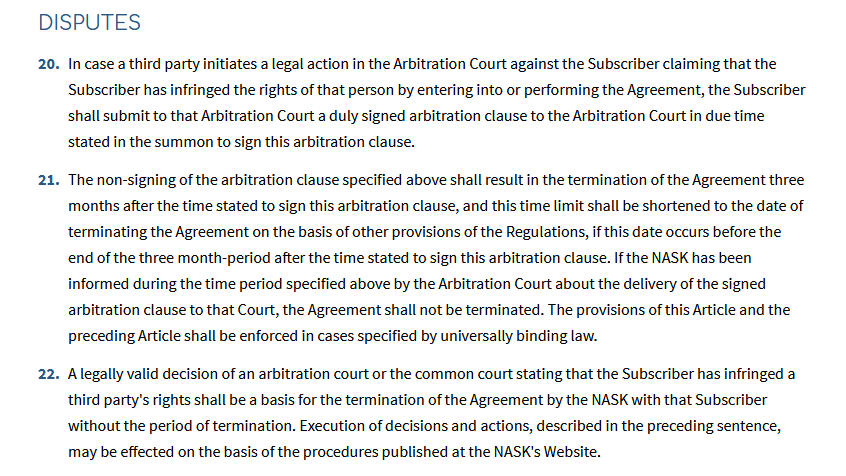
Extras din Termenii și Condițiile referitoare la domeniul .pl. Sursa: https://www.dns.pl/en/pl_domain_name_regulations
Soluționarea disputelor legate de domeniile globale
În cazul domeniilor globale, calea de acțiune este mai limitată. Poți conta pe procedura de soluționare a disputelor doar dacă există un conflict de înregistrare a domeniilor de internet cu mărci comerciale și când ai dovezi că domeniul a fost înregistrat cu rea-credință.
Procedura de soluționare a disputelor care decurg din înregistrarea și utilizarea domeniilor globale este Politica Uniformă de Soluționare a Disputelor pentru Numele de Domeniu (UDRP), implementată în 1999 de ICANN (instituția responsabilă cu atribuirea numelui de domeniu pe Internet).
Pentru a recupera un domeniu global, poți depune un caz la Centrul de Arbitraj și Mediere WIPO. Procedurile se desfășoară în limba engleză, iar reclamantul poate solicita eliminarea domeniului din registru sau transferul drepturilor de gestionare a domeniului.
Cu toate acestea, pentru a putea iniția procedura, trebuie să demonstrezi că se aplică cele trei condiții ale regulilor de soluționare a disputelor:
“4. a. Soluționarea Disputelor. Ești obligat să te supui procedurilor administrative obligatorii în cazul în care o terță parte ("reclamant") determină cu furnizorul de servicii corespunzător, conform reglementărilor, că
(i) numele de domeniu al utilizatorului este identic sau similar confuz cu marca comercială sau marca de servicii la care reclamantul are dreptul; și
(ii) nu ai drepturi sau interese legitime în legătură cu numele de domeniu; și
(iii) Numele tău de domeniu a fost înregistrat și este utilizat cu rea-credință.
În procedurile administrative, reclamantul trebuie să dovedească că fiecare dintre aceste trei elemente este prezent.”
Soluționarea disputelor legate de domeniile .eu
În cazul domeniilor .eu, problema va fi soluționată de Instanța de Arbitraj Cehă din Praga.
Instanța de Arbitraj desfășoară soluționarea alternativă a disputelor pe baza reglementărilor, regulilor și reglementărilor Comisiei Europene. Trimiterea corespondenței, precum și a cazului, se face în formă electronică, așa că nu trebuie să călătorești la Praga. De asemenea, nu trebuie să cunoști limba cehă, deoarece cazul poate fi adus în limba maternă a oricărui membru al Comunității Europene.
Conform articolului 22 din Regulamentul Comisiei (CE) nr. 874/2004 din 28 aprilie 2004, privind regulile de reglementare a domeniului .eu:
“O procedură ADR poate fi inițiată de orice parte în care:
a) înregistrarea este speculativă sau abuzivă în sensul Articolului 21; sau
b) o decizie luată de Registru contravine acestui Regulament sau Regulamentului (CE) nr. 733/2002.
2. Participarea la procedura ADR va fi obligatorie pentru deținătorul unui nume de domeniu și Registru.”
Disputa este soluționată de o echipă de arbitri specializați în drepturi de autor, iar procedurile durează până la câteva luni. Dacă instanța constată că drepturile asupra domeniului .eu au fost încălcate, acesta va fi luat de la abonatul existent și predat celeilalte părți a disputei.

Soluționarea disputelor legate de domeniile naționale
Pe lângă UDRP, există reguli diferite de conciliere în domeniul disputelor legate de domeniile cu extensii naționale. Acestea sunt supravegheate de Centrul de Arbitraj și Mediere de la WIPO. Problema atunci când încerci să recâștigi dreptul de a gestiona un domeniu național constă în faptul că fiecare țară poate avea proceduri individuale de soluționare a cazurilor.
WIPO a fost mediator în soluționarea disputelor legate de domenii din 3 august 2000. Funcționează sub Programul de ccTLD WIPO, care a fost inițiat prin trimiterea unui mesaj administratorilor tuturor ccTLD-urilor. Poți găsi o listă a extensiilor naționale pentru care Centrul WIPO oferă servicii de soluționare a disputelor aici. La WIPO, poți iniția, de asemenea, proceduri legate de domeniul .pl.
Pe site-ul WIPO, poți să te familiarizezi cu metodele alternative de soluționare a disputelor (comparativ cu procedurile judiciare comune). Acestea includ, de exemplu, medierea, arbitrajul și arbitrajul accelerat. Poți, de asemenea, să consulți departamentul de servicii pentru clienți – care te va ajuta să rezolvi cazul tău individual – https://www.wipo.int/amc/en/#contact
Rezumat
Cel mai important lucru pe care ar trebui să-l ai întotdeauna în minte atunci când încredințezi cuiva înregistrarea unui domeniu în numele tău este să te asiguri că ești înregistrat ca abonat al domeniului. Dacă menții o relație cu abonatul actual al domeniului tău, contactează-l cât mai curând posibil și cere-i să-ți atribuie domeniul. Nerespectarea acțiunii în timp ce este posibil va lucra împotriva ta. Necesitatea potențială de a dovedi că ai gestionat domeniul de-a lungul anilor poate fi consumatoare de timp, costisitoare și uneori ineficientă pentru tine.
Dacă nu reușești să schimbi abonatul pe cale amiabilă, va trebui să recurgi la asistența instanței. Poți alege o instanță comună sau o instanță de arbitraj. Care este mai bine de ales depinde de exemplu de extensia domeniului, cât de repede vrei să obții rezultatul procesului și cât de mulți bani ești dispus să cheltuiești.
FAQ – probleme legate de abonatul domeniului
Ce este un abonat de domeniu?
Persoana sau entitatea înregistrată oficial cu drepturi de a gestiona un nume de domeniu în timpul perioadei sale de subscripție.
Cum pot verifica cine este abonatul domeniului meu?
Conectează-te la panoul de control al registratorului tău sau folosește baza de date WHOIS. Pentru unele domenii, datele personale pot fi ascunse din cauza GDPR.
Pot forța un registrator să-mi ofere datele abonatului?
Nu direct, dar poți să le ceri să contacteze abonatul în numele tău sau să-ți transmită detaliile tale.
Ce se întâmplă dacă merg la arbitraj?
Domeniul este de obicei blocat pe durata cazului, împiedicând abonatul să-l transfere sau să-l șteargă până când disputa este soluționată.
Procedurile legale sunt aceleași pentru toate domeniile?
Nu. Procedurile variază în funcție de extensie (.pl, .com, .eu etc.), dar multe dispute sunt gestionate de instanțe de arbitraj specializate, cum ar fi WIPO sau registrii naționali.
Promovez serviciile, produsele și software-ul nostru. Lucrez îndeaproape cu echipele de dezvoltare și suport, creez campanii și conținut, gestionez rețelele sociale și traduc concepte tehnice complexe în comunicare clară pentru clienții noștri.


